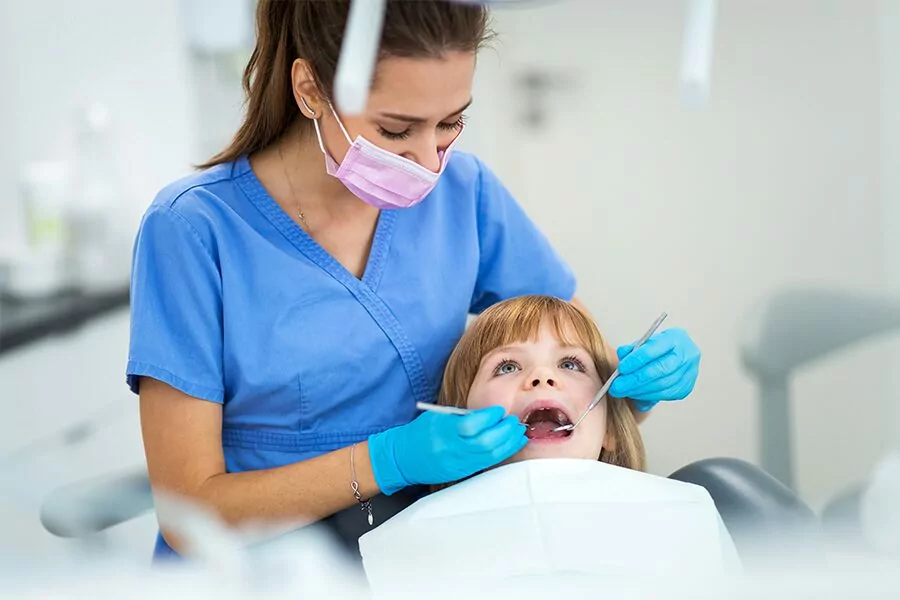A Guide to Common Oral Problems That Require a Dental expert's Treatment
Understanding the variety of dental conditions that necessitate expert care is paramount for keeping optimal oral health and wellness. Toothaches, for instance, can be symptomatic of severe concerns such as dental caries, split teeth, or abscesses, each calling for specific interventions like fillings or root canals. Gum tissue condition, from the onset of gingivitis to much more extreme periodontitis, highlights the significance of regular oral examinations and cleansings. Affected wisdom teeth and jaw conditions can present considerable discomfort and difficulties. Making sure timely sees to the dental practitioner can reduce these problems properly, however exactly what are the indications and treatments entailed?
Toothaches
Toothaches are a typical oral problem that can vary from mild discomfort to serious pain, commonly indicating an underlying concern that requires professional attention. This discomfort can originate from a selection of sources, including tooth decays, split or fractured teeth, and dental abscesses. Each of these problems postures significant threats if left without treatment, potentially bring about more severe difficulties.
Oral cavities, likewise understood as cavities, are created by the accumulation of plaque that wears down tooth enamel, leading to openings or pits in the impacted teeth. Abscesses are painful infections at the root of a tooth or between a tooth and the periodontal, typically resulting from extreme degeneration or untreated tooth cavities.
Effective treatment of toothaches includes resolving the root cause. This may include dental fillings for dental caries, crowns for fractured teeth, or root canals and antibiotics for abscesses. Early treatment by an oral specialist can prevent further degeneration and ease discomfort, guaranteeing optimal oral health.
Gum Condition
Periodontal condition, a widespread yet typically overlooked oral condition, shows up via inflammation and infection of the periodontals and sustaining cells. If left untreated, gingivitis can proceed to periodontitis, an extra extreme form characterized by the damage of the supporting bone and connective cells, eventually leading to tooth loss.
The key reason for gum tissue illness is microbial plaque, a sticky, colorless movie that regularly develops on teeth. Poor dental hygiene, smoking cigarettes, genetic predisposition, and specific medical problems, such as diabetes mellitus, can exacerbate the threat of establishing gum illness. Routine dental check-ups are essential for very early detection and management of this condition.
Treatment for periodontal disease varies from expert dental cleansing and scaling to advanced treatments like root planing and gum surgical treatment, depending upon the seriousness. Preserving excellent dental health practices, consisting of brushing twice daily, flossing, and utilizing an antibacterial mouth wash, can dramatically decrease the danger of gum disease and advertise much healthier gum tissues.
Tooth Cavities
Cavities, also called dental decays, are a typical oral condition identified by the destruction of tooth enamel as a result of acid-producing bacteria in the mouth. These bacteria flourish on sugars and starches from food and beverages, creating acids that progressively erode the enamel, causing cavity formation.
Early-stage cavities may not show signs and symptoms, but as they advance, they can cause toothache, sensitivity to hot or cold, noticeable holes or pits in the teeth, and discoloration. If left without treatment, cavities can pass through much deeper layers of the tooth, possibly causing extreme discomfort, infection, and even tooth loss.
Stopping cavities includes a mix of excellent oral health techniques and nutritional routines. Regular cleaning with fluoride tooth paste, flossing, and regular oral examinations are vital. Dental practitioners might additionally advise additional precautionary actions, such as fluoride therapies and oral sealants, to secure teeth from decay.
Treatment for dental caries relies on their seriousness. Minor cavities can be addressed with oral fillings, which bring back the tooth's structure. If the decay has gotten to the tooth's pulp, extra sophisticated cases might require crowns or even origin canal treatment. Prompt treatment by a dental professional is crucial to avoid difficulties and keep overall oral wellness.

Impacted Wisdom Teeth
Influenced knowledge teeth are a common dental issue that takes place when the 3rd molars, commonly referred to as knowledge teeth, fall short to fully emerge or align effectively within the mouth. This condition commonly arises from not enough room in the jaw or an abnormal growth angle of the teeth. Influenced knowledge teeth can result in a selection of issues, including damages, infection, and pain to nearby teeth.
When wisdom teeth come to be impacted, they are commonly partly appeared or continue to be totally below the gum line. This partial eruption can create a pathway for germs to get in the gum tissues, bring about infections that materialize as swelling, discomfort, and even fever. Furthermore, influenced wisdom teeth can put in pressure on neighboring teeth, potentially triggering crowding or moving.
A detailed dental examination, generally including X-rays, is vital for identifying affected wisdom teeth. Treatment frequently involves surgical extraction, executed by an oral cosmetic surgeon. The treatment aims to minimize pain look at here and stop further difficulties, such as cysts or damage to surrounding bone structures. Post-operative care is vital to make certain appropriate recovery and reduce the danger of infection. Routine dental exams are advisable to monitor the condition and keep oral wellness.
Jaw Disorders
Jaw problems, collectively referred to as temporomandibular joint (TMJ) conditions, encompass a variety of conditions that impact the jaw joint and surrounding muscular tissues. These conditions can manifest with symptoms such as pain or tenderness in the jaw, problem eating, a clicking or popping sound when opening or shutting the mouth, and even persistent headaches. TMJ problems can develop from different factors, consisting of joint inflammation, anchor jaw injury, or habitual actions like teeth grinding or jaw clenching.
Medical diagnosis of TMJ disorders commonly involves a comprehensive assessment by a dentist, including a health examination of the jaw, dental X-rays, and sometimes advanced imaging methods like MRI or CT checks to evaluate the joint's problem. Treatment choices differ depending on the seriousness of the condition. Non-invasive strategies such as physical therapy, dental splints, and drugs targeted at reducing inflammation and discomfort are often first-line treatments. In much more serious instances, surgical interventions may be required to remedy architectural concerns look at more info within the joint.
Very early intervention by a dental professional is crucial to avoid the progression of TMJ problems and to preserve overall oral health and wellness. People experiencing persistent jaw discomfort or disorder must seek prompt evaluation and therapy.
Final Thought
Toothaches commonly indicate underlying concerns such as tooth cavities, split teeth, or abscesses, needing prompt treatment. Influenced wisdom teeth and jaw problems likewise require specialist interest to reduce discomfort and avoid more complications.
Dental dental caries, also known as decays, are caused by the accumulation of plaque that erodes tooth enamel, leading to openings or pits in the impacted teeth. Abscesses are painful infections at the origin of a tooth or in between the gum and a tooth, typically resulting from serious degeneration or neglected tooth cavities.

In addition, impacted wisdom teeth can put in pressure on surrounding teeth, potentially creating crowding or changing.